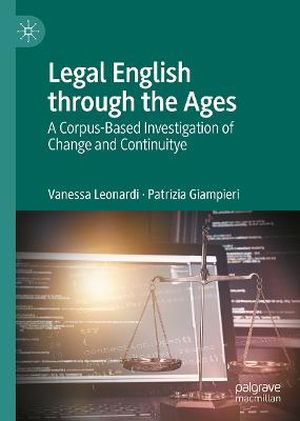
This book offers a comprehensive analysis of the evolution of legal language, tracing its development from historical formulations to contemporary adaptations, including the emerging role of artificial intelligence in legal translation and communication.
Through a diachronic study of three specialised legal corpora – the Corpus of Historical English Law Reports 1535–1999 (CHELAR), the British Law Report Corpus (BLaRC), and the Bononia Legal Corpus (BoLC) – this monograph identifies key trends in legal English, revealing a gradual shift towards simplification, modernisation, and greater inclusivity, most notably reflected in the reduction of gender-biased language. Building on this historical foundation, the study situates the contemporary use of artificial intelligence within the broader trajectory of legal language reform, examining how emerging technologies continue—and in some cases accelerate—the shift toward simplification and accessibility, particularly through the automated translation and processing of legal texts. It critically assesses both the potential of AI to enhance communicative clarity and its limitations in navigating the complexity and conservatism that characterise legal discourse.
By integrating historical, linguistic, and technological perspectives, this work provides valuable insights into the trajectory of legal discourse, the methodological contribution of corpus-based analysis, and the evolving role of AI in fostering inclusivity and clarity in legal communication. It will be of particular interest to scholars and practitioners in the fields of law, legal linguistics, translation studies, historical linguistics, and corpus linguistics.